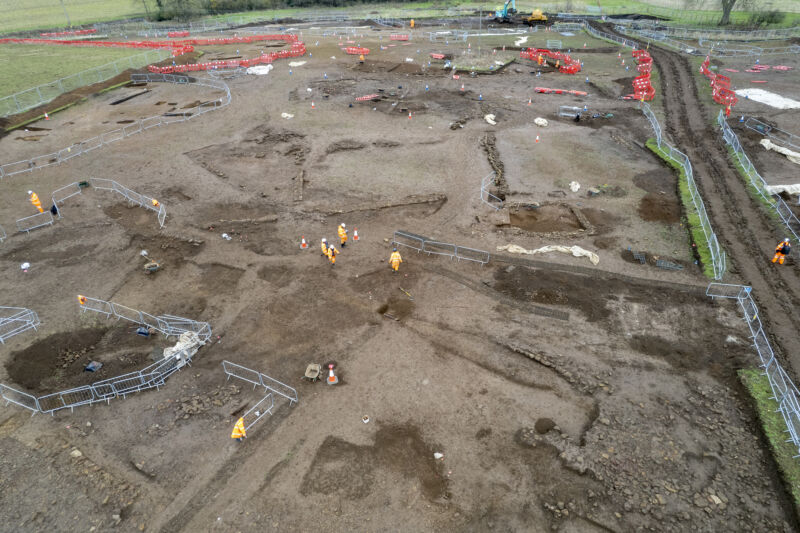
Enlarge / Aerial shots with drone of Blackgrounds Roman archaeological site. (credit: HS2)
Archaeologists surveying the planned route of a high-speed railway between London and Birmingham in the UK unearthed the remains of a Roman trading town in what is now South Northamptonshire.
At its height, the town boasted an assortment of workshops and businesses, with long-buried foundations that archaeologists have spent the past year carefully unearthing from the site’s dark—almost black—soil. Artifacts at the site, from jewelry and finely made ceramics to more than 300 Roman coins, hint at ancient affluence. According to archaeologists with the Museum of London Archaeology (MOLA) Headland Infrastructure, most of that wealth probably came from trade along the nearby River Cherwell or the 10-meter-wide stone-paved Roman road running through the middle of the town.
“It indicates that the settlement would have been very busy, with carts simultaneously coming and going to load and unload goods,” said MOLA Headland Infrastructure in a statement.
